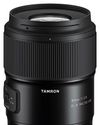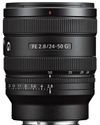
From the simplest point and shoot to the most advanced DSLR (or an MLC) there is probably no camera in the world without some form of exposure compensation control. This is perhaps the most extensively used feature by all advanced photographers. Yet it can be tricky to understand how exactly it operates. This article aims to go deep into this feature and help readers get a comprehensive understanding. Let us start by recalling a few fundamentals.
To begin, exposure is the right ‘dosage’ of light to create an image with the maximum number of tones recorded. The job of the exposure is to control the light falling on the sensor and thus bring it within the recording range. This is very similar to the way how iris in our eyes regulates the light reaching the retina. Exposure can be considered to have three components - Shutter speed, Aperture, and ISO. Though it is often mentioned that these three form the so-called ‘exposure triangle’ (Picture 1) there is a difference in the way they behave. The first two together, either individually or together regulate the amount of light that reaches the sensor. The ISO on the other hand is an electronic function that defines the amount of light needed to make a proper exposure, with higher ISO values needing less light. There is also a mistaken notion that ISO changes the sensitivity of the sensor. It does not as that is fixed once the sensor is made. Increasing the ISO in your camera essentially enhances the gain of the internal amplifiers thus making the signal from the sensor stronger with the adverse side effects of increased noise and reduced dynamic range.
Bu hikaye Smart Photography dergisinin May 2023 sayısından alınmıştır.
Start your 7-day Magzter GOLD free trial to access thousands of curated premium stories, and 9,000+ magazines and newspapers.
Already a subscriber ? Giriş Yap
Bu hikaye Smart Photography dergisinin May 2023 sayısından alınmıştır.
Start your 7-day Magzter GOLD free trial to access thousands of curated premium stories, and 9,000+ magazines and newspapers.
Already a subscriber? Giriş Yap

AIPTIA CEIF Expo 2025 Wraps Up as a Landmark Event in New Delhi
CEIF Expo 2025, organized by the All India Photo Trade & Imaging Association (AIPTIA), was held from January 9 to 11 at Pragati Maidan, New Delhi.

Super Sharp
The Tamron 90 mm F/2.8 Di III Macro VXD lens (Model F072), compatible with Sony E-mount and Nikon Z-mount full frame cameras was launched worldwide on October 24, 2024.

Capturing the Essence of Nature in a Photobook
Ashok Kandimalla, a passionate photographer and an engineer, captures Kenya's landscapes and wildlife in his photobook, Postcards from Kenya. By carefully selecting images and telling a compelling story, Ashok emphasizes the enduring value of print over digital formats. This project marks the beginning of his journey in photobooks.

Mumbai Design Xpress (MDX '24): A Celebration of Colour and Creativity
Pantone's Mocha Mousse debuted in India at the third edition of Mumbai's very own Design Festival the Mumbai Design Xpress a.k.a MDX '24, where Mumbai's design community celebrated colour's transformative power through panel discussions, workshops, and performances.

Vivo X200
The VIVO X200 represents a significant step forward in smartphone design and photography capabilities, offering users a compelling package that combines style with substance.

Manish Gupta, Head of Product Lifecycle Management and Planning Division, Konica Minolta, India
At CEIF 2025, we highlighted our prime flagship products: the Accurio Press C84hc/C74hc with revolutionary high-chroma technology, the Accurio Shine 3600 with inline Foil for premium finishing, and our high-performance AccurioPress C12000 and C7100 series.

Small but Versatile
The Nikon Z50 Mark II, successor to the Z50, was introduced in India on November 7, 2024, four years after the launch of the Z50.

Another Good One from Sony!
Sony is the leader as far as mirrorless lenses are concerned and has over 70 lenses in its arsenal.

Conversation with Vivek Handoo
Vice President & Head of APAC & MD Australia - OM Digital Solutions Corporation At CEIF 2025 (Consumer Electronic Imaging Fair)

SELECTING THE RIGHT SYSTEM
Buying a new mirrorless camera can be a daunting decision. Not only are cameras very expensive, but also choosing a brand with an exclusive mount can mean locking yourself into a system.